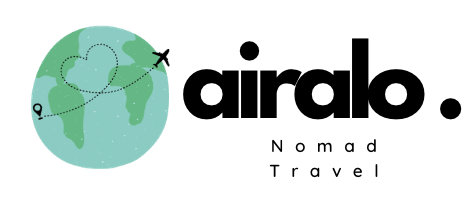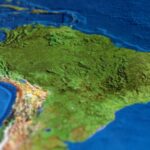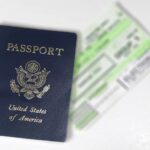
Amid the tide of global travel and remote work, more and more digital nomads are choosing to open bank accounts in different countries in order to obtain more convenient financial services and more flexible money management methods. However, frequent cross-border operations and complex laws and regulations make digital nomads concerned about one question: Is it really safe to store funds in foreign banks? This article will analyze for you how digital nomads can ensure the safety of their funds from aspects such as bank security, deposit protection, account management, and risk prevention.
1. Choose a reliable bank
As a digital nomad, choosing a reliable bank is crucial for fund security and daily financial management. Here are some detailed suggestions to help you choose the right bank in different countries:
1.1 Stable international ratings
A bank’s international rating reflects its financial stability and credit standing. World-renowned rating agencies such asMoody’s、S&P and Fitch, which will score the bank based on factors such as its assets, capital adequacy ratio, and debt repayment ability. Choosing a bank with a higher rating usually means that the bank has greater ability to withstand risks during economic fluctuations or financial crises.
- Class A and above rating: These banks usually have strong financial soundness and are the first choice for long-term deposits and capital security. For example, the rating isAaaThe banks have extremely high creditworthiness and are suitable for large deposits or long-term investments.
- Category B and below ratings: While these banks perform well in some markets, they have higher credit risks and may face greater financial instability, making them unsuitable for digital nomads to store large amounts of money for an extended period of time.
To learn more about international ratings, you can visit the websites of these rating agencies:
- Moody’s
- S&P Global Ratings
- Fitch Ratings
1.2 Deposit insurance system
Knowing whether a bank participates in the deposit insurance system is one of the key factors in choosing a bank. Deposit insurance is a guarantee provided by the government or a third-party institution to ensure that depositors will receive a certain amount of compensation when a bank fails.
- United States (FDIC):AmericanThe Federal Deposit Insurance Corporation (FDIC) provides coverage of up to $250,000 per accountInsurance protection ensures that depositors will not suffer significant losses in the event of bank failure. For more information, check out the FDIC official website:FDIC official website
- European Union: In EU countries, bank deposits are subject toEU Deposit Protection Directiveprotection, the insurance amount is100,000 euros. You can visit the European Banking Authority website for specific safeguard policies:European Banking Authority
- other countries: In many developed countries, such as Canada, Australia and Singapore, banks also participate in similar deposit insurance schemes. Before opening a bank account, be sure to confirm whether the bank you choose is covered by the local deposit insurance system to ensure that you are protected in the event of emergencies.
1.3 Local and international reputation
A bank’s reputation reflects its service quality and customer satisfaction. When choosing a bank, it’s crucial to understand other customers’ real-life experiences.
- Social media and forums:passsocial media(such as Facebook, Twitter) andFinancial Forum(such as Reddit’s financial section, The Motley Fool) and other platforms, you can quickly understand other users’ feedback on banking services. These reviews not only help you understand the quality of the bank’s day-to-day service, but also reveal how efficiently the bank handles customer complaints and resolves issues.
- Independent review website: Websites such asTrust pilotandGlassdooretc. provide extensive user reviews. By looking at a bank’s ratings on these platforms, you can get a comprehensive understanding of its service quality, customer support, and ability to conduct cross-border transactions.
- Connect with local residents and digital nomads: Ask digital nomads or local residents living in the country or region for their banking experience, especially the real problems they encounter when dealing with cross-border financial matters.
1.4 Cross-border service capabilities
As a digital nomad, you need a bank that not only provides local services but also has good cross-border financial services capabilities. Here are a few key points:
- International transfers and foreign exchange: Whether the bank’s international transfer service is convenient, whether the fees are reasonable, and whether the foreign exchange exchange rate is transparent and competitive are all key points for digital nomads when choosing a bank. Choosing a bank that offers low fees and supports multiple currencies can help you save on remittance costs. Common cross-border payment platforms such asWise、PayPalCan also be used in conjunction with traditional banks.
- Global ATM Network and Credit Card Usage: Whether the bank has an extensive ATM network around the world and whether the credit cards it issues are widely accepted in other countries and regions are factors you need to consider when choosing a bank.
1.5 Online banking services
Modern digital nomads rely on online banking services to manage their money and pay their bills. Choosing a bank that offers advanced online platforms and mobile apps will greatly increase your efficiency.
- Mobile Banking App: Ensure that the bank’s mobile app can provide basic functions such as account management, international transfers, bill payments, and balance inquiries, and is secure and user-friendly.
- Internet banking: Choose an online banking platform that provides powerful functions and easy operation, so that you can handle your financial affairs anytime and anywhere when traveling in different countries.
For example,RevolutandN26Digital banks such as ET offer global mobile banking services through which you can easily manage your money globally:Revolut official website、N26 official website
2. Multi-country account management and currency risk
It has become a common practice for digital nomads to open bank accounts in multiple countries. This not only facilitates transactions across various countries but also protects funds from losses in the event of currency fluctuations. However, cross-border money management is not without its challenges, especially when faced with exchange rate fluctuations, foreign exchange fees and different countries’ monetary policies. Therefore, understanding and effectively managing these factors is critical to ensuring financial security.
2.1 Foreign exchange risk
Foreign exchange risk is one of the main risks digital nomads face when managing cross-border accounts. Fluctuations in currency exchange rates between different countries can lead to asset losses, especially in countries with unstable economies. For example, the currency of some countries may depreciate significantly due to political uncertainty or economic crisis, causing the funds you hold to shrink.
- Impact of exchange rate fluctuations: Even in countries with seemingly stable currencies, day-to-day fluctuations in exchange rates can have an impact on cross-border accounts. For example, changes in the exchange rate of the U.S. dollar against the euro directly affect the cost of transferring money between the United States and Europe.
- Currencies of high-risk countries: The currencies of certain countries (such as the currencies of some emerging markets or developing countries) may fluctuate violently due to inflation, political turmoil and other reasons. For example, the Argentine peso and Venezuelan bolivar have experienced extreme depreciation over the past few years, which exposes accounts holding these currencies to greater exchange rate risk.
Coping strategies:
- Choose a strong currency account: To minimize foreign exchange risks, digital nomads should prioritize accounts in stable countries with strong currencies. For example,US Dollar (USD)、Euro (EUR), **Swiss Franc (CHF)** and other currencies usually have relatively stable exchange rates, and these currencies have strong liquidity in global financial markets, so they can be used as major reserve currencies.
- Use exchange rate tools: Some banks and cross-border payment platforms (such as **WiseandRevolut**) Provides real-time exchange rate reminders and the function of locking the exchange rate to help users convert currencies when the exchange rate is more favorable, thereby reducing losses caused by exchange rate fluctuations.
2.2 Currency Diversification
To reduce the risk of currency devaluation, digital nomads can adopt a currency diversification strategy. By storing funds in accounts in multiple currencies, you can take advantage of the stability of the value of other currencies to reduce overall asset losses when one currency depreciates.
- Strong currency selection: Choosing strong currencies such as the US dollar, euro and pound for deposits can enhance the risk resistance of assets during global financial turmoil. For example, the U.S. dollar is considered one of the most stable currencies in the world, so holding U.S. dollar deposits can effectively avoid the risk of currency depreciation in certain countries.
- Cross-currency account management: Many modern banking and financial platforms, such as **N26、Revolut、Wise**, etc., provide multi-currency account functions, allowing users to manage multiple currencies in one account. This gives you the flexibility to convert between different currencies while avoiding the financial risk of a single currency depreciating.
Implementation strategy:
- Choose a multi-currency account: By choosing a bank or platform that offers multi-currency accounts, you can hold multiple currencies at the same time. For example,RevolutandWisePlatforms allow digital nomads to hold multiple currencies in one account and convert them based on the exchange rate to reduce the foreign exchange risk of funds.
- Flexible transfers: Choose a platform that can perform cross-currency transfers at low cost, allowing you to quickly adjust the currency combination in your account when needed. For example,WiseIt not only provides a superior exchange rate, but also helps users transfer funds across currencies through lower handling fees, reducing the cost of foreign exchange transactions.
2.3 Cross-border expense management
In addition to foreign exchange risk and currency selection, the cost of cross-border transfers is also an important factor that digital nomads need to pay attention to. Cross-border transfers often involve handling fees, exchange rate differences and other hidden fees, which may affect the actual flow of funds.
- Cross-border fees for traditional banks: Many traditional banks charge higher fees when sending cross-border money and often offer poor exchange rates when converting currencies. These fees accumulate as the amount and frequency of transfers increase, seriously affecting the value of the funds.
- Cost comparison of cross-border payment platforms: Modern cross-border payment platform (such as **Wise、PayPalandRevolut**) Typically offers lower cross-border fees and better exchange rates. By comparing fees and exchange rates across different platforms, digital nomads can choose the most cost-effective way to transfer funds.
Optimization strategy:
- Choose a low-cost platform: If frequent cross-border payments are required, digital nomads can choose cross-border payment platforms with transparent and low fees.Wise、RevolutPlatforms such as these provide a better cross-border payment experience, especially suitable for digital nomads who frequently need cross-border remittances or fund transfers.
- Avoid traditional bank transfers: Avoid using traditional banks for cross-border remittances, as they typically charge higher remittance fees and often have larger exchange rate differences.
3. Understand national financial laws and regulatory mechanisms
When choosing a country and bank to open an account, digital nomads must have a deep understanding of the financial laws and policies of different countries as well as the bank’s regulatory mechanisms. These laws and policies may have a direct impact on the use of accounts, the movement of funds, and cross-border transactions. Failure to understand the relevant regulations may not only lead to account freezing, but may even lead to asset losses. Here are some financial legal and regulatory mechanisms that digital nomads need to pay special attention to before opening an account:
3.1 Anti-Money Laundering Laws (AML)
Anti-Money Laundering (AML) is an important law in the banking system of many countries, aiming to prevent illegal capital flows and money laundering. According to the legal requirements of different countries, banks usually conduct strict monitoring and review of the source and use of funds in the account. If a digital nomad fails to provide sufficient proof of the source of funds or an explanation of the purpose of the funds, the bank’s anti-money laundering mechanism may be triggered, causing the account to be frozen or transactions restricted.
- Review of large cross-border transactions: In many countries, cross-border fund transfers or large-value transactions (usually referring to more than a certain amount, such as US$5,000 or equivalent currency) require special declarations, and banks will require detailed proof of the source of funds. If adequate explanation is not provided, the bank may doubt the legitimacy of the transaction and initiate an anti-money laundering review process.
- Compliance of funding sources: For example, in EU countries, banks are obliged to know the source of their customers’ funds, especially when the inflows are large. Digital nomads should avoid frequent money movements without a clear source or purpose to reduce the risk of triggering anti-money laundering investigations.
Coping strategies:
- Prepare proof of source of funds in advance: When making cross-border transfers, ensure that you can provide complete proof of the source of funds, such as salary slips, contract income, investment income, etc. These supporting materials can reduce the risk of bank review and freezing of accounts.
- Understand anti-money laundering provisions: Before opening an account, study the anti-money laundering regulations of the country where the account is opened to ensure the compliance of account activities. You can refer to the relevant bank website or consult a professional for detailed information.
3.2 Tax filing and compliance
Tax policies vary widely between countries, especially as digital nomads often live across borders. Some countries tax earnings on non-resident accounts, particularly interest on deposits or investment income. At the same time, some countries require residents or non-residents to provide detailed declarations of bank accounts and capital movements to ensure tax compliance.
- Tax requirements on deposit earnings: Many countries impose taxes on interest income from bank deposits. Even though digital nomads do not have actual tax residency in some countries, they may still be required to report interest or other financial gains earned on bank accounts in that country. For example, the United States requires all deposit interest income to be reported when it exceeds a certain amount (such as $10).
- Reporting of account fund movements: Some countries require digital nomads to declare cross-border fund movements, especially transfers involving larger amounts. For example, tax authorities in some countries may require you to report details of the source or flow of funds to them, in some cases to avoid tax evasion.
Coping strategies:
- Understand tax filing requirements: Before choosing to open a bank account, be sure to research the tax regulations of the country where the account is opened, especially the tax requirements regarding non-resident bank accounts and deposit earnings. You can consult a professional tax advisor or use specialized tax tools (such as **TaxJar**) to help understand and comply with local tax policies.
- Ensure compliance reporting: Even if you are a non-resident, don’t neglect your tax filing responsibilities. Make sure your annual tax filing covers all interest income or other related income from bank accounts to avoid tax problems or penalties due to negligence.
3.3 Foreign exchange controls and capital flows
Some countries implement foreign exchange control policies to restrict the outflow or inflow of funds, especially the transfer of large amounts of funds. Digital nomads who open bank accounts in these countries and conduct cross-border fund transfers may encounter additional approval processes or be limited in the transfer amount.
- exchange controls: For example, some developing countries or countries with unstable political situation may impose strict restrictions on the flow of funds in foreign currency accounts. Even if bank accounts are not frozen, the flow of cross-border funds may be regulated and require strict review and approval.
- Funds transfer restrictions: For example, in China, India, and some other countries, exchange controls may limit the maximum amount that can be transferred from domestic accounts to foreign accounts each year (for example, the annual transfer limit for individuals is US$50,000).
Coping strategies:
- Choose a country not affected by exchange controls: When choosing a country to open an account, you can give priority to countries that have no foreign exchange controls or have loose foreign exchange controls, such as Singapore, Hong Kong and other places, so as to avoid restrictions on fund transfers.
- Understand foreign exchange policies: Before transferring funds cross-border, understand the foreign exchange policy of the country where the account is opened and ensure that the transfer complies with regulations. Especially when making large transactions, you can communicate with the bank in advance to ensure smooth flow of funds.
3.4 Financial privacy protection
Financial privacy protection is another important aspect in the financial laws of different countries. Some countries have stricter bank secrecy laws to ensure that customer account information is not leaked. Some countries have looser privacy protection policies, which may result in digital nomads’ account information being accessed by more government agencies or third parties.
- Guarantee of financial privacy: For example, Switzerland is known for its banking secrecy laws, where customer account information is extremely protected and virtually impossible to view by third parties or government agencies. In contrast, some countries have less strict scrutiny of bank accounts, and more third-party institutions may obtain account information.
- Transnational Account Information Disclosure:Many countries have joinedCRS (Common Reporting Standard), which requires banks to automatically report customers’ account information to their home country’s tax authorities to facilitate the international exchange of tax information.
Coping strategies:
- Learn about privacy policy: When choosing a country to open an account, you can choose countries with strong financial privacy protection laws, such as Switzerland and Singapore, to ensure the security of personal account information.
- Protect account privacy: When conducting cross-border account management, ensure that sensitive information of the account is not disclosed, and use financial platforms with strong financial privacy protection as much as possible.
4. Use digital banking and fintech services
The rapid development of digital banking and financial technology (FinTech) services has greatly improved the financial management experience of digital nomads. Through these services, digital nomads can enjoy more convenient and flexible financial operations, such as global account opening, real-time currency exchange, low-cost cross-border transactions, etc. However, the convenience of digital banking services also comes with potential risks. Especially when choosing an international financial service platform, digital nomads need to pay special attention to its security and compliance.
4.1 Choose a digital bank with a financial license
Many fintech companies offer digital banking services that claim to offer the same functions as traditional banks, such as deposits, lending and payment processing. However, not all digital banks are strictly regulated. Some companies may operate outside the legal framework or only have limited licenses in certain areas.
- The importance of financial license: A financial license is a certification granted by a regulatory agency to a legitimate financial institution. It usually ensures that the bank or financial company complies with local legal regulations, including anti-money laundering laws, consumer protection laws, etc. Institutions without financial licenses may face less regulatory scrutiny, and it is more difficult to protect customers’ financial security and privacy protection.
- How to confirm license plate: When choosing a digital bank, digital nomads should carefully check the bank’s official website or contact its customer service to confirm whether it has the relevant financial license. For example, digital banks in Europe need to be approved by the European Central Bank or local financial regulators, and digital banks in the United States need to be registered as financial institutions and regulated by the Office of the Comptroller of the Currency (OCC).
Coping strategies:
- Verify digital banking qualifications: Via the official website of the financial regulator (e.g.UK Financial Conduct Authority FCA、European Central Bank, the U.S. Office of the Comptroller of the Currency (OCC) verifies whether the digital bank has a legal license.
- Fintech platforms with good regulatory history are preferred: Choose those fintech companies that have been regulated for a long time and have a good compliance record, such asRevolut、Wise、N26.
4.2 Multi-factor authentication (2FA) enhances account security
Due to the online nature of digital bank accounts, security is a key factor that digital nomads need to pay special attention to. Hacks of bank accounts and financial services happen all the time, so it’s crucial to have enhanced security measures in place.
- Two-factor authentication (2FA): Two-factor authentication (2FA) adds a second layer of security verification in addition to traditional username and password protection. For example, use a one-time password (OTP) to authenticate via SMS or an app such as Google Authenticator. This authentication method effectively prevents unauthorized access.
- Multi-factor authentication (MFA): On the basis of 2FA, multi-factor authentication (MFA) will require users to provide more authentication information, which may include biometrics (such as fingerprint or facial recognition), physical security keys, etc., to further enhance account security protection.
Coping strategies:
- Enable 2FA and MFA: Make sure digital bank accounts have two-factor authentication (2FA) enabled and, where possible, use more secure multi-factor authentication (MFA) options such as fingerprint recognition or physical security keys (e.g.Yubikey)。
- Change your password regularly: Update account passwords regularly and avoid using simple, easy-to-guess passwords. It is recommended to use a password manager (such asLastPass) to generate and store strong passwords.
4.3 Managing digital assets using crypto wallets and virtual bank accounts
For digital nomads, in addition to traditional bank accounts, the management of cryptocurrencies and virtual assets is an important part of financial management. With the popularity of cryptocurrency and blockchain technology, more and more digital nomads are beginning to use crypto wallets and virtual bank accounts to manage assets in different currencies, especially when making international payments, investments, and asset storage.
- Crypto Wallet Choices: Crypto wallets are used to store and manage digital currencies (such as Bitcoin, Ethereum, etc.). They are divided into hot wallets (online wallets) and cold wallets (offline wallets). Hot wallets facilitate frequent transactions, but are less secure; cold wallets provide higher security and are suitable for long-term storage of assets.
- Advantages of Virtual Bank Accounts: virtual bank account (e.g.Payoneer、Wise) can help digital nomads flexibly manage multiple currencies, reduce currency exchange fees, and enable easy remittances and payments around the world. Some virtual banks also provide low-fee cross-border transfer services, suitable for digital nomads who frequently conduct international transactions.
Coping strategies:
- Choose a safe and reliable crypto wallet platform:likeLedger、Safeand other hardware wallet providers that can provide the most secure environment for long-term storage. For frequent transactions, choose a hot wallet with multi-signature capabilities, such asCoinbase, Blockchain Wallet, etc.
- Use a multi-currency virtual bank account: Choose a virtual bank account that can support multiple currencies, such asWise、Revolut、Payoneer, these platforms provide low-fee international transfer and currency exchange services, suitable for digital nomads to manage cross-border funds.
4.4 Cross-border payment and multi-currency account management
As globalization develops, digital nomads increasingly rely on cross-border payments and multi-currency accounts to handle income and expenses from different countries. Utilizing multi-currency accounts and instant remittance services provided by digital banks and fintech platforms can significantly improve fund management efficiency and reduce handling fees.
- Multi-currency account management: Some digital banks (e.g.Revolut、Wise) provides a multi-currency account function, allowing users to hold multiple currencies in the same account and avoid high handling fees due to currency conversion. Digital nomads can store, pay and send money in multiple currencies in these accounts, greatly simplifying cross-border transactions.
- Instant quotes and cross-border payment transparency: The digital banking and financial technology service platform helps users reduce hidden fees and obtain clearer capital flows when making international payments through real-time exchange rate quotations and cross-border payment transparency.
Coping strategies:
- Preferred multi-currency account platform: Choose a platform that supports multi-currency account functions, such asRevolut、Wise、N26, to easily manage different currencies.
- Pay attention to real-time exchange rates and fees: Before making cross-border payments, pay attention to the real-time exchange rate and handling fee standards provided by the platform to avoid additional financial losses due to exchange rate fluctuations or hidden fees.
5. Establish emergency funds and contingency plans
For digital nomads, asset security not only relies on choosing the right bank and financial products, but also requires a reasonable asset allocation and risk management strategy. Since the lifestyle of digital nomads usually involves moving across multiple countries and facing different economic, political, and legal risks, establishing emergency funds and emergency plans is an important part of ensuring personal financial security. Here are some key tips to help you develop an effective emergency fund and contingency plan:
5.1 Emergency Fund Reserve
An emergency fund is a core component of a digital nomad emergency plan, helping you deal with unexpected financial needs such as unexpected medical bills, travel disruption, or job loss.
- Purpose of financial reserves: Emergency funds should be used to deal with emergencies, such as sudden medical problems, flight cancellations, lost luggage and other unforeseen expenses. A digital nomad’s emergency fund goes beyond cash reserves and can include a flexible savings account or credit card limit to ensure quick access to funds in an emergency.
- Where funds are stored:
- Liquid account: Keep emergency funds in an account that is easy to access, preferably one that can be accessed online at any time. Can be usedRevolutorWiseThere are virtual bank accounts that offer high liquidity, and you can also choose high-interest current deposit accounts from traditional banks.
- emergency backup card: Additionally, carrying a credit card or prepaid card (such as PayPal Prepaid) can serve as a backup payment tool in the event you lose access to your bank account, especially if local bank support is lacking.
- Fund reserve amount:
- It is generally recommended that the amount of emergency fund reserves be equivalent to at least 3-6 months of living expenses. If the economy of your country is highly volatile, or you have no fixed source of income, you can increase the reserve ratio appropriately.
- Specific operations: Determine the amount of reserve funds based on estimates of monthly living expenses (such as accommodation, food, transportation, etc.). Storing emergency funds in different currencies is also an important consideration for digital nomads who frequently move across borders.
Coping strategies:
- Adjust the amount of your emergency fund regularly to ensure it increases or decreases as life needs change.
- Choose a bank or financial service platform that supports fast cash withdrawals and cross-border transfers to avoid funds that cannot be used smoothly in emergencies.
5.2 Regularly monitor account dynamics
Account management for digital nomads requires constant attention to account security and fee changes to avoid unnecessary losses due to negligence. Regularly monitoring account dynamics can not only help you detect abnormal transactions in time and reduce the risk of misappropriation, but also understand changes in bank policies and fees.
- Check account activity: Log in to your bank account regularly (monthly or weekly) to check transaction records and confirm whether each transaction in the account is legal. If there is any suspicious activity, take immediate steps to freeze your account or contact your bank.
- Understand bank policy changes: The bank’s policies such as handling fees, exchange rates, and deposit interest rates may change at any time, so you need to check the announcements of the bank or financial service platform regularly, especially when choosing a service platform with frequent cross-border transactions.
- Password and security settings updates:
- Change your account’s login password every once in a while (such as every three months) and make sure your password is complex and difficult to guess. Consider using a password management tool such asLastPass) to generate and store strong passwords.
- Enable two-factor authentication (2FA) or multi-factor authentication (MFA) to keep your account secure. For example, add login verification through applications such as Google Authenticator.
Coping strategies:
- Set reminder notifications for your bank account and receive reminders of transaction information and account changes at any time.
- Pay attention to your account’s annual or monthly reports to learn about your bank’s fees and fee adjustments.
5.3 Legal consultation and protection
Understand the legal environment and banking protection mechanisms in your country, especially in cross-border environments where digital nomads often find themselves, where legal systems and financial policies may differ. With reasonable legal protection, measures can be taken quickly when problems arise, reducing the risk of financial losses.
- Understand local financial laws: Different countries have different anti-money laundering regulations, tax policies and deposit protection mechanisms. When choosing a bank and financial services platform, understanding local financial laws can help you avoid legal liability for non-compliance with local regulations. Especially in some developing countries, financial laws may be weak, and digital nomads need to be more cautious.
- Bank deposit protection mechanism: Many countries have deposit protection funds (such as the U.S.FDICand EuropeanEuropean Deposit Protection Scheme), this mechanism guarantees that bank customers’ deposits will receive a certain degree of compensation in the event of bank bankruptcy. Choosing a protected bank account can reduce your financial risk.
- Buy insurance to hedge risks: Some financial risks cannot be completely avoided through bank management or legal protection, so digital nomads can consider purchasing international travel insurance, medical insurance, and insurance products specifically targeted at digital nomads (such asSafetyWing). These insurance products can provide medical, property and legal protection, especially supporting your financial security in the event of emergencies.
Coping strategies:
- Choose a bank with a deposit protection plan to ensure that your deposits are protected by the government or relevant institutions in case of emergencies.
- Consult a financial advisor or attorney to understand tax and financial regulations in a specific country or region to avoid legal disputes.
- Consider purchasing suitable insurance for emergencies, especially travel and health insurance that covers financial risks.
in conclusion
For digital nomads, keeping their money safe is an important part of living across borders and working remotely. Choosing a stable and reputable bank, as well as understanding relevant information such as deposit protection, account management, and cross-border fees, can help you effectively prevent financial risks. In cross-border operations, foreign exchange risks, currency selection and cross-border fees are areas that need to be focused on. Proper use of multi-currency accounts, exchange rate tools and low-fee payment platforms will help reduce financial losses. At the same time, an in-depth understanding of the financial laws and regulations of the host country, especially anti-money laundering laws and tax policies, is also the key to ensuring account security and smooth capital flow.
In short, to ensure the safety of funds, digital nomads not only need to choose suitable banks and financial platforms, but also pay close attention to the financial supervision and legal requirements of various countries. With careful choices and sound money management strategies, you can ensure the safety of your money and efficiently manage your cross-border finances, providing strong support for your digital nomad’s freelancing career.





